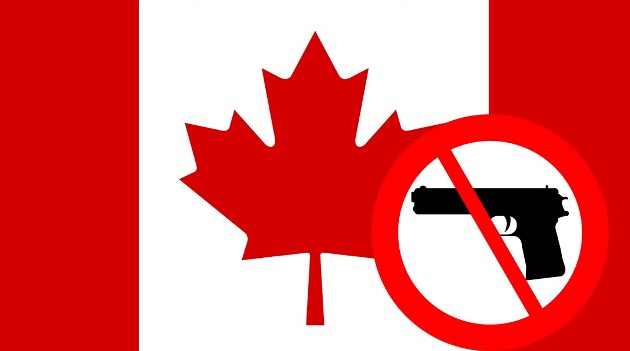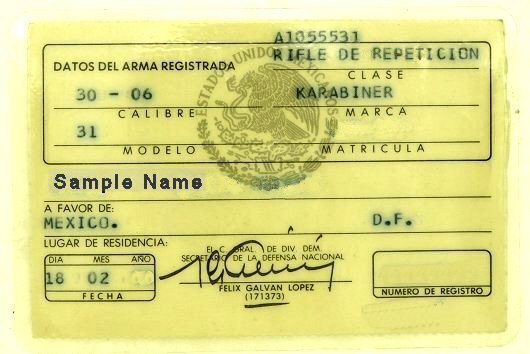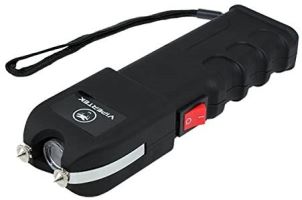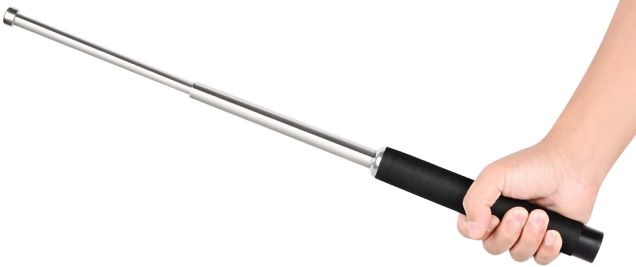Part of being a prepper is being able to defend yourself and your family from threats. Many preppers feel more secure with a supply of firearms and wouldn’t dream of having to give them up. However, if you are planning on becoming an expat prepper, the gun laws of the country you are moving to might be prohibitive.
There are many challenges with being an expat, let alone challenges with being an expat prepper. If you are from a country that cherishes its gun rights, like the United States, the idea of living without guns may be difficult to imagine. Americans to figure out how to defend yourself in such a country might be overwhelming.
After all, 46% of the world’s civilian-owned guns are the property of US citizens. Guns are not illegal in all countries. However, it may be more difficult to obtain permits if you are not a natural-born citizen of that country. Let’s look at a few countries’ gun laws.
Canadian Gun Laws
In Canada, guns like traditional hunting rifles are classified as non-restricted. Restricted firearms are those like handguns, and automatic weapons are prohibited entirely. To carry a “non-restricted” firearm you’ll need to take a firearms safety course, pass a test, submit to a background check, and provide reference interviews.

For restricted firearms, you’ll need to take an additional course. Carrying guns primarily for self-defense against humans is prohibited; although you can get a wilderness carry permit for protection against wild animals. You can bring a non-prohibited gun into Canada with a temporary permit for 60-days as a non-citizen. This is primarily to accommodate hunting tourism.
Australian Gun Laws
In Australia, you are required to show a genuine need for a particular kind of gun and take a safety course to get a license. Self-defense is not considered a genuine need. You’ll also need to demonstrate you are a “fit and proper person” as well as prove your identity with specific forms of identification. The importation of weapons is controlled by the federal government.
Israeli Gun Laws
Gun laws are more lenient in Israel since military service is compulsory. At conscription, new recruits go through psychological screening and are given weapons training. Private handgun licenses can be obtained by any citizen who has gone through this combat training. You must be a resident for at least three consecutive years; speak passable Hebrew; pass a criminal, health, and mental history check; have a reason to carry a weapon; have an acceptable gun safe; and pass a training course and retake that course every three years as long as you have a permit. Those who wish to have a gun for self-defense can only own one handgun and may only purchase 50 cartridges every year.
United Kingdom Gun Laws
The United Kingdom has some of the strictest gun regulations in the world. Unless you live in Northern Ireland, handgun possession is prohibited. Not even the police carry guns. Automatic and semi-automatic firearms are banned. To apply for a permit, you must demonstrate you have had no criminal convictions, no alcohol or drug-dependence, no history of depression or other nervous disorders, do not have epilepsy, a good reason for having a gun, and have a secure gun safe. Personal defense is only acceptable as a reason for gun ownership in Northern Ireland.
Mexican Gun Laws
In Mexico, legal residents and citizens can carry guns but are subject to certain regulations.

To obtain a permit, you must have no criminal record, proven income and residence, gone through compulsory military service, pass a drug test, have a job, and have a justifiable reason. You are permitted one handgun for self-defense and must be purchased from the Ministry of Defense.
Other Ways to Defend Yourself as an Expat Prepper
If you’re contemplating a seasonal or permanent move to another country, the reality is you may have to go without firearms. That doesn’t mean you’re left entirely defenseless, however. There are other options you can consider.
Tasers and Stun Guns
Although legal in most of the United States, other countries have a less lenient view of these non-lethal weapons. Civilians are not authorized to own or use any sort of electroshock weapon in most countries, although police officers and military personnel may have access to tasers as part of their weapons arsenal.
Don’t think you can be sneaky about carrying a taser or stun gun either. In the UK, if a taser is discovered disguised as another object, such as a flashlight or cell phone, you’ll get 5 years in prison. If you own want in its original design, it’s 10 years and an unlimited fine.
Stun guns are a viable, non-lethal option in the U.S., regardless of any expat plans. A good stun gun, like the Vipertek VTS-989, costs less than a box of ammunition, is rechargeable, and also has an LED light!
Pepper Spray
Pepper spray is also known as capsaicin spray and can be categorized along with dog control and anti-bear sprays. These sprays work by temporarily blinding the animal or person that gets it in their eyes. It is painful, causes the eyes to become inflamed, and can cause shortness of breath.
Pepper spray is illegal to carry in even small amounts in some countries including the UK, Iceland, Sweden, Belgium, China, and Denmark. Having pepper spray in a country where it is banned may result in a fine, prison time or even deportation, so do your research.
Switzerland, Germany, India, Finland, and Portugal allow you to carry pepper spray if you have a special license to do so. Some countries, like Canada, may allow you to carry it but if you use it against a person you can be charged with assault, fined or sent to jail.
Like the stun gun above, pepper spray is also a viable, non-lethal self-defense option right in the U.S. SABRE Advanced Pepper Spray is not only compact, but costs less than a hoity toity coffee at Starbucks!
Tactical Baton
You may have some wiggle room in the tactical baton category. Although there are restrictions in some countries, odds are if you aren’t carrying it about in the street, no one will make a fuss about your possession of one.
There are some exceptions, however. Canada prohibits spring-loaded batons. Ireland has banned telescopic truncheons. The UK enacted the Offensive Weapons Act in 2019 which took away the legality of tactical batons even when kept at home.
Knives
It’s common in Mexico to stroll through the countryside with a machete and nobody bats an eye. We keep an extra machete in our truck and on the front of the motorcycle for situations that may arise. Not all countries are as lenient with knife laws though.
In Belgium, you can not carry a knife on your person or inside a vehicle without legal reason. Canada has criminalized knives that open automatically with five years of jail time for possession.
There are no restrictions on knife possession as long as they are not used to commit a crime in the Czech Republic. Fixed blade and folding knives can be bought in France but not carried. If they are kept in a vehicle, they must be in a locked compartment.
Ex-Pat Self-Defense if All Else Fails
If you are still uncertain about the legality of a tactical baton, taser, pepper spray, or knife after reading the laws of the country you are living in, it may be better to choose a tactical flashlight or solid baseball bat as your primary self-defense weapon.
Want more information? This Wiki page actually has a great overview of gun laws by nation.
Of course, your biggest self-defense strategy isn’t any particular item at all – it’s your mind. Be smart, maintain situational awareness, employ the gray man concept, and be vigilant. This applies whether you’re in a foreign country or not.



1 comment
I lived in Panama for 5 years and it is a beautiful country filled, for the most part, with friendly people willing to help whenever they can. getting a firearm there is a bit more different and time consuming then most other countries. First you need theur version of a “green card” proof of permanent residence and that can be tricky. I followed all their rules for residence prior to moving there and that included a criminal background check. However they ran out of blank green cards and it took them almost a year before I was able to attain mine. You need that to buy a firearm so my quest was short circuited for a while. After receiving my residence card I bought a vastly over-priced revolver, a Taurus .38 that cost around $600. However I couldn’t take possession until I was checked by the federal police and get a blood test to be sure I wasn’t on drugs. That took almost 5 months before I was allowed to pick my revolver up from the federal police armory. Then I was allowed to by ammunition, FMJ only at $35 a box of 50. When I picked up my pistol I was also given a permit that doubled as a CCW and would make any further purchases easier and quicker. I’d only need a blood test and a quick local scan for any illegal activities since my original purchase. That gun I carried with me everyday as I went about living the life of a expat.
A little more about the prices of firearms and ammunition in Panama. First there is only one gun store in the entire country and it’s located in Panama City. There was a second store, but it went out of business before we moved back here. It also was the only public range in the country. I originally wanted a Glock 36 in .45 ACP like me carry gun back in the states, but a gun that cost me $590 here was $1,500 there. Same with a Colt 1911, a SIG or a S&W, all were available at extremely high prices. Ammo was equally marked up. My original box or .38 FMJ was $35 a box of 50, .45 ACP was over $50 and you could not buy ,223/5.56 or 7.62X39 anywhere legally. However there was a thriving black market on weapons of all types. AR’s, AK’s, Enfields, SIG rifles were available and at decent prices if you wanted to chance getting caught by the police and believe me Panamania prisons are no where near as nice as American prisons are and ours are no bed of roses by any means. So when I was offered an AKM, I turned it down immediately.
The whole point of this article and my story is to illustrate that with all our many faults, America is still the best place for people in general and survivalists/preppers in particular. Running away for the US may sound like a plan, but trust me, your better off here. Besides Panama I’ve spent 2 years in Vietnam and went back once afterwards to bring my wife home to visit her family. Again a beautiful country filled with mostly friendly people. But to try to live there, or anywhere other than the US is next to impossible.